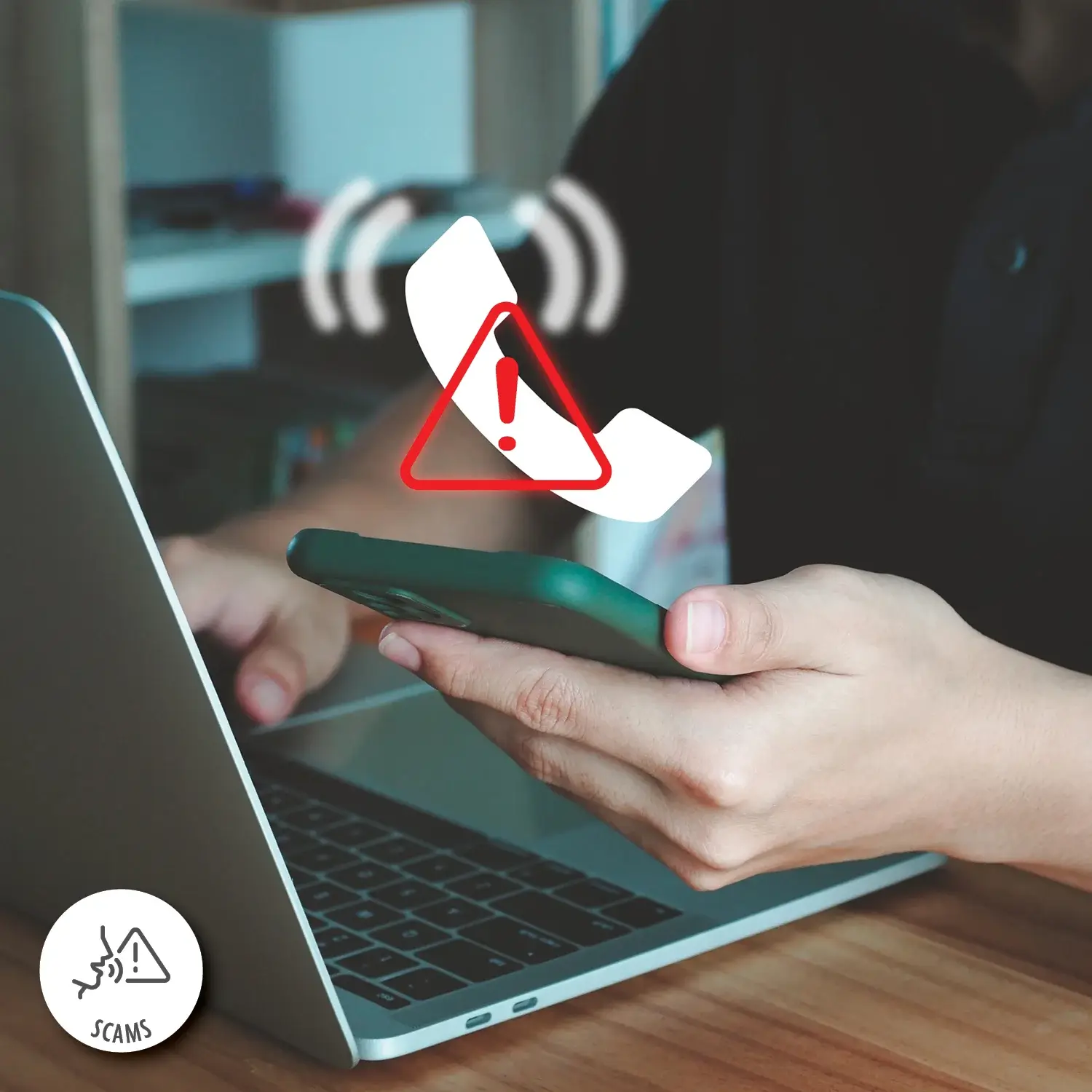
Beware of Debt-Collection Scams
Tuesday, Oct 26 2021
Have you ever gotten a call saying you owe money? Threats that if you don’t pay today, you’ll have legal action taken against you? In 2020, the Federal Trade Commission received more than 2.1 million fraud reports from consumers. Debt collection scams generate more fraud reports to the FTC than any other industry. Fraud and scams can happen at any time and any place.
Avoiding debt collection scams and keeping your money safe is an ongoing challenge as scammers become more creative. Everyday in Oklahoma we hear of new and improved tactics that are used to trick people into paying debts they do not owe.
What is a Debt Collection Scam?
The FTC calls it “phantom debt collection.” You get a call from someone claiming to be a debt collector, collection agency, police officer, or lawyer. The caller insists you’re late paying a loan or have an outstanding credit card balance and demands immediate payment.
Dealing with debt collection issues can be challenging. While there are legitimate debt collectors, there are also many scammers. Avoiding debt collection scams and keeping your money safe is essential to your financial stability and the security of your identity.
Spotting a Debt Collection Scam
How do you avoid debt collection scams and keep your money safe with so many scammers out there? One way is to look for common warning signs of a scam.
Withholds Information
Debt collectors have rules and regulations they must follow. A debt collector must provide specific information upon first contacting you or in writing within five days of the initial communication.
Debt collectors must provide the following information:
- Amount of the debt, including accrued interest, late charges, and collection costs
- Creditor name, address, and phone number
- Name of the original creditor (if different from the current creditor)
- Information on disputing the debt
Demands Immediate Payment
Debt collectors may ask you to pay over the phone immediately, but you don’t have to comply. Scammers want money right away. They will insist on payment and threaten additional fees or legal action if you don’t pay immediately.
Ask for Sensitive Information
Debt collectors are limited to what they are permitted to ask you. Be wary if the caller asks for your Social Security Number, bank account numbers, or credit card information. Legitimate debt collection companies may require you to verify information already on file but not provide information to them.

Use Aggressive Tactics
Legitimate debt collection agencies must follow the regulations outlined in the Fair Debt Collection Practices Act. The act limits where and when a person can receive collection calls.
FDCPA also prohibits:
- Using threatening, profane, or abusive language
- Making continuous collection calls to annoy the debtor
- Providing misleading or false information
- Calling before 8 a.m., after 9 p.m., or at work, if you’ve communicated otherwise
Specifies Payment Type
Collection agencies want their money no matter how you pay them. Most accept debt payment through a combination of mail, phone, website, or debit card. A scammer may insist they can only accept payment in a single way or over the phone. Sometimes a scammer will want you to pay via gift card, wire transfer, or prepaid debit card because they are difficult to trace.
What to Do If Someone Contacts You about Debt
Debt collectors can be intimidating, especially if you aren’t sure if you owe the money. But there are actions you can take to help identify fraudulent scammers.
If a debt collector calls you:
- Ask for Identification. Request the caller’s name, address, and phone number. You can then research to determine if they’re authentic. Don’t cooperate if they refuse to provide this information.
- Validate the Debt. If you don’t recognize a debt, send the debt collector a dispute letter via certified mail within 30 days and ask for verification. Don’t make a payment if you are unsure of the debt.
- Search for the Collector. Once you get identifying information from the caller, search online for the debt collection agency. You may find complaints about scam collection agencies on the internet.
- Hang Up. If the caller harasses or threatens you, hang up. Scammers are looking to make a quick buck and are likely to move on.
- Protect Your Information. Providing information such as your Social Security Number, bank account numbers, or credit card information can put you at risk for identity theft or allow the scammers to pull money from your accounts. Don’t provide it over the phone.
- File a Complaint. Submit a complaint to the Consumer Financial Protection Bureau or contact your local attorney general’s office about the potential scammer
Avoiding Debt Collection Scams and Keeping Your Money Safe
Banking and shopping online are super convenient, but they aren’t without risks. To help protect your money when banking and shopping online, you need to keep your privacy and security top of mind.
Keep these tips in mind to keep your money safe:
- Use Strong Passwords. Using the same password across multiple accounts creates risk. Choose unique passwords for different accounts. Implement two-factor authentication where possible.
- Confirm a Site is Secure. Pay attention to websites’ URLs. Check whether the site has an “HTTP” or “HTTPS” tag. The “HTTPS” tag is more secure compared to “HTTP.” Another way to check the site’s security status is to click on the padlock icon in the address bar. The padlock means the site should be secure.
- Access Accounts on a Secure Network. You should never log into your bank account from an unsecured device or unprotected Wi-Fi network.
- Check Your Credit Score. Check your credit score regularly. Look for errors and report any fraudulent activity. Report any concerns immediately.
- Monitor Account Activity. Regularly checking your bank account for suspicious activity can help you avoid scams and keep your money safe. If you see activity in your account that you don’t understand, contact your bank immediately.
How Focus Federal Credit Union Can Help
Focus Federal Credit Union can help you with avoiding debt collection scams and keeping your money safe. Focus Federal does our best to inform account holders of any scams we become aware of. We also have policies in place to protect your Focus Federal accounts from suspicious activity. And, of course, we’re here to help if you have questions about activity on your account. If scammers target you, alert the Federal Trade Commission.




